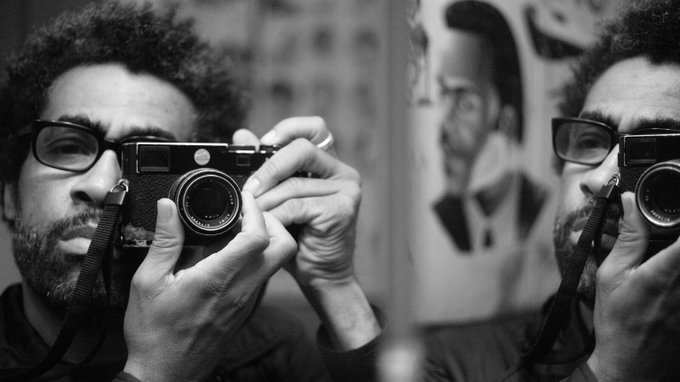Thomas Sayers Ellis, a poet, photographer, educator, and bandleader whose work challenged the boundaries of Black expression in America, died this week at the age of 61. His death was confirmed by family members. A cause has not yet been made public.
Ellis was a towering creative presence whose work braided together the lyrical, the political, the ancestral, and the avant-garde. Known for his razor-sharp intellect and fearless artistry, he forged a singular path through poetry, photography, and performance — often at once.
He rose to prominence in the early 2000s with his poetry collections The Maverick Room and Skin, Inc., blending formal precision with cultural critique and deep introspection. His verses were not only rich with musicality and rhythm — they were also alive with rage, reverence, and an unrelenting demand for accountability from systems of power.
But Ellis was never content with one medium. He was also a powerful visual storyteller, capturing Black life with equal parts intimacy and defiance through his photography. And as a co-founder of the avant-funk band Heroes Are Gang Leaders, Ellis explored the intersections of poetry and sound — honoring the legacy of Amiri Baraka and pushing it into the now.
“He didn’t just write about Blackness — he sang it, screamed it, lived it,” said a fellow poet. “He understood art as resistance, but also as deep, complicated love.”
Born and raised in Washington, D.C., Ellis came of age surrounded by go-go music and the raw pulse of the capital’s contradictions. He earned his MFA from Brown University and later taught at Sarah Lawrence, Case Western Reserve, and the Iowa Writers’ Workshop, mentoring generations of emerging poets with rigor and fire.
In the classroom and on the page, he was known for his wit, his originality, and his refusal to conform — whether to literary expectations or institutional constraints.
A frequent critic of what he saw as the erasure or commodification of Black voices in American letters, Ellis didn’t shy away from hard truths — but he always did so with craft, style, and radical care.
He received numerous honors throughout his career, including fellowships from the MacDowell Colony and the Fine Arts Work Center in Provincetown. But for those who knew him, his real legacy wasn’t in awards — it was in his refusal to silence himself or others.
“He taught us how to speak,” said a former student. “And he taught us what it costs — and why it’s still worth it.”
Thomas Sayers Ellis is survived by loved ones, bandmates, colleagues, students, and readers who will carry his words forward. In a world quick to flatten identity, Ellis insisted on complexity — on the messy, joyful, painful fullness of being Black, brilliant, and unbound.
A public memorial is expected to be announced in the coming days. In the meantime, his voice echoes on: in his poems, in his photographs, in the funk, and in the fight.
Rest in power, Thomas Sayers Ellis. The mic is yours — still.
